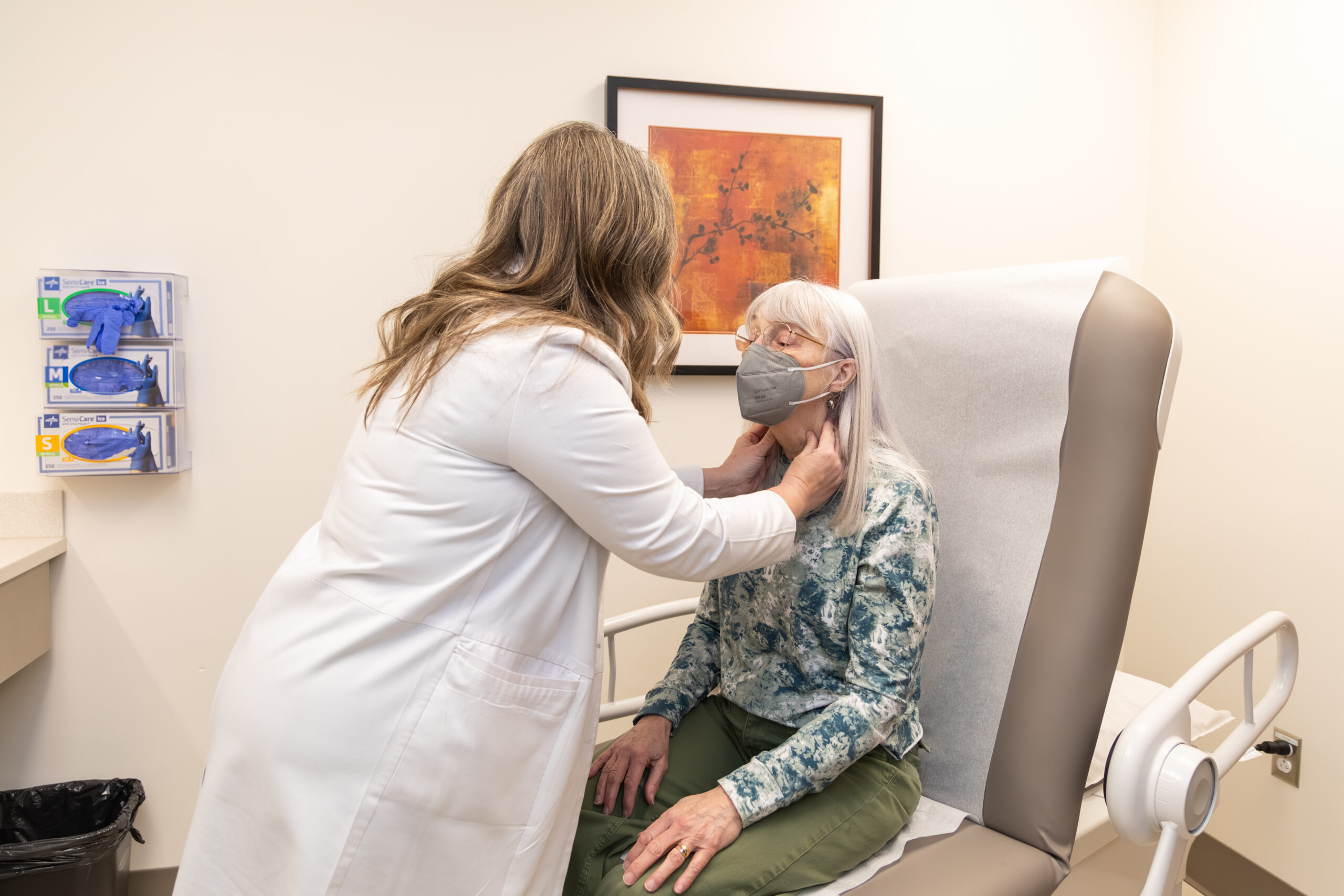
Long-term care (LTC) nursing offers a dynamic and rewarding career path where registered nurses’ (RNs) skills, compassion, and dedication can make a difference in the lives of individuals and their families. Long-term care is not what you think!
Long-Term Care Nursing: Broaden Your Impact
Nursing in LTC focuses on delivering ongoing support to individuals with chronic illnesses, disabilities, or age-related conditions. This specialized field is dedicated to improving quality of life through compassionate and person-centered care. While LTC can broadly include services such as home health, RNs have great opportunities in skilled nursing facilities (e.g., nursing homes and rehabilitative care) and assisted living facilities.
In LTC, nurses have the opportunity to:
• Develop critical thinking, creativity, time management, and leadership
• Learn a wide variety of nursing skills
• Engage in care planning and patient management
• Make close connections with patients
• Maintain job security
• Gain competitive salary and benefits
In case you haven’t heard, our population is aging! And that’s not bad news. As our population ages, the landscape of healthcare and jobs for nurses will change rapidly.The demand for nurses in LTC will increase, and patient populations in LTC will become more diverse with increasingly complex health needs.
In short, there is so much opportunity for nurses!
How do you want to be cared for?
Most Americans over the age of 65 will live in Long-Term Care at some point in their lives.
There are a lot of outdated and inaccurate assumptions about what it’s like to work in long-term care – especially among those who haven’t experienced it firsthand. These myths can prevent nurses and nursing students from considering a field that’s deeply rewarding, clinically complex, and full of opportunity.
Below, we address some of the most common misconceptions and provide insights grounded in the real experiences of LTC professionals.
The Facts About Long-Term Care Careers:
Fact: LTC offers a diverse range of roles, from direct patient care to leadership and advanced practice. Many LTC nurses transition to roles in policy, education, and research. Additionally, LTC offers RNs the ability to more quickly move into leadership and management roles. Finally, nurses looking to become nurse practitioners (NPs) have a great deal of opportunity in LTC. In LTC, NPs provide primary healthcare services to residents with complex medical needs, focusing on chronic disease management, and overall quality of life, while collaborating with other healthcare professionals within the facility. Estimates suggest approximately sixty to seventy percent of medical care in LTC is directed by NPs or models of care that include NPs.
“I LOVE when an executive director has a nursing background. This uniquely positions them to bridge the gap between clinical and operational priorities. They fully empathize with the challenges nurses face and can better advocate for resources and policies that support the clinical team and ensure high-quality care. This shared understanding fosters trust and collaboration between the executive director and the nursing staff, creating a cohesive and supportive work environment.” – Paula, RN in Skilled Nursing
Fact: LTC nurses manage complex care, including medication reconciliation, chronic disease management, and acute care during emergencies. They also play a vital role in end-of-life care and advance care planning.
“One misconception is that in long-term care was helping people toileting, you just clean up poop all day… which is definitely a misconception because that’s just one part of helping some with ADLs, and you do it exactly the same in hospital settings.” – Zoe, Nursing Student & Nurse Tech in Skilled Nursing
Fact: While this does depend on the specific facility and management practices, the work environment in LTC is often uniquely compassionate and collaborative.
Nurses have shared that they are surprised by how collaborative staff are, and
how they have the opportunities to connect with colleagues and share tasks
throughout the workday.
“I feel like wherever I’ve worked, there’s always a really close-knit community among the staff, and there’s always a helpful environment, like everyone wants to support each other … It’s more collaborative.” – Zoe, Nursing Student & Nurse Tech in Skilled Nursing
Fact: End of life is an important part of life. Nurses have a nuanced, vital role to play in communicating with families and patients about palliative services and end of life care. Though nurses in LTC do manage end-of-life care, many patients enter LTC for transitional and rehabilitative services, and nurses play a key role in ensuring a smooth transition from acute care back into their lives at home.
“Long-term care is not depressing. It is filled with joy.” – Linda, RN in Assisted Living
“There’s such a misconception out there that nursing homes are just passing meds, and they’re dreary, and they’re sad – and they’re not! The patients can be vibrant and fun and there’s a lot to do for skilled nursing.” – Marianne, RN in Skilled Nursing
Fact: LTC is not easy. While the specific skills nurses use depends on the type of facility and patient needs, LTC requires nurses to have a breadth of critical nursing skills and requires unique skills such as building long-term trust with patients and families, navigating memory care, and operating independently to guide patient care.
“One important skilled aspect of care in long-term… is wound prevention and management. This is a critical clinical skill for nurses in this setting… The expertise required to assess, prevent, and treat these conditions is a cornerstone of nursing practice in long-term care and highlights the advanced clinical skills needed in this field.” -Paula, RN in Skilled Nursing
“I would think that other nurses would want to work in long-term care if they are looking for something that’s challenging as well as relational… Long-term care is not an easy type of nursing…. We have extensive wound care, we have IVs, piggybacks, catheters, central lines, pick lines. I actually have a lot of fun at my job, there are so many things that I laugh at, so much joy that I get interacting with my patients. I look forward to seeing them every day, and they look forward to seeing me.” – Marianne, RN
Developing Critical Nursing Skills in Long-Term Care
Nursing in LTC is not easy! It requires that nurses employ critical thinking, creativity,
and leadership. Long-Term Care nurses develop the following skills:
Patient Management

LTC nurses lead care for patients with complex conditions, ensuring their overall well-being.
Leadership Skills

Coordinate with and delegate tasks to healthcare staff while overseeing quality care.
Time Management

Effectively manage time and adapt quickly to meet patient needs.
Patient Relationships

LTC nurses form long-term bonds, leading to personalized advocacy and early issue detection.
Broad Skillset Required

LTC nurses are expected to master a wide range of clinical skills across patient care needs.
Specialized Expertise

LTC nursing offers opportunities to specialize in areas like wound care and tracheostomy care.
LTC Offers a Wealth of Personal and Professional Rewards
• Fulfilling career: Make a lasting impact on patient lives and your own.
• Gain valuable technical skills: From clinical expertise in managing chronic conditions and wound care, to effective communication and organizational skills.
• Growth and development: For those interested, LTC facilities offer ample
opportunities for leadership or to specialize in a range of areas such as geriatric or palliative care.
• Job security: As the aging population continues to grow, the demand for skilled Long-Term Care nurses remains strong.
• Flexible work: allows you to balance your professional and personal life.
• Financial stability: LTC nursing careers often come with competitive salaries and comprehensive benefits packages.
Transform Your Nursing Career Today!
- Explore opportunities and job resources through Career Bridge
- Find support and inspiration for Washington nurses at Be the Reason
- Discover national openings at Nursing Home Careers from CMS.